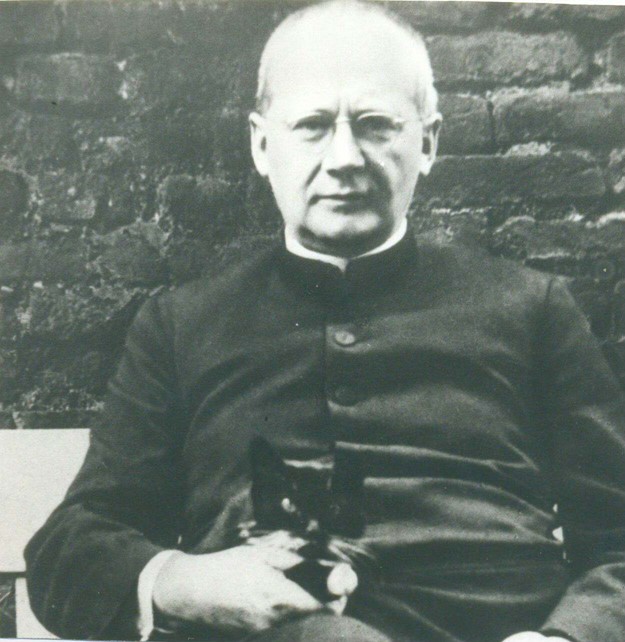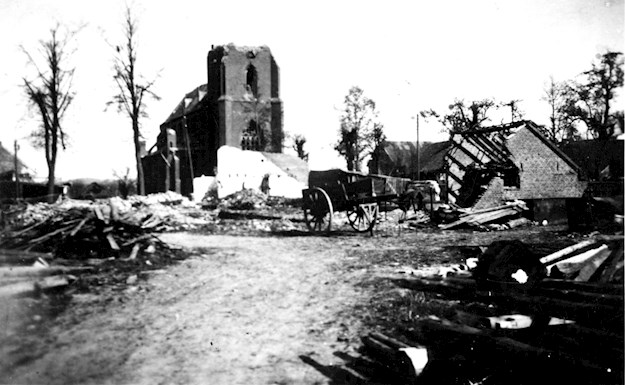- Gocher Str. 61, 47559 Kranenburg, Germany
Until September 1944, the citizens of Frasselt had been largely unaffected by the war. In preparation for Operation Market Garden, Allied bombers dropped large numbers of fragmentation bombs around the edge of the Reichswald to prevent the German troopsfrom posing a threat to the airborne troops. As far as we know, only civilians were hit. The pastor of Frasselt documented his memoirs in 1947.
Until September 1944, the citizens of Frasselt had been largely unaffected by the war. That changed with the Allied invasion of Normandy on 6 June 1944. The war broke out again in western Europe. The Siegfried Line was reactivated and, on Hitler’s orders in the ‘Führererlass’ of 24 August, construction was resumed. To stop the Allied advance, a trench had to be dug along the border. To that end, the Germans mobilised men too old for the army, Reichsarbeitsdienst (Reich Labour Service) units, and the Hitler Youth, as well as forced labourers. On 4 September, the digging began between the Rhine and the Reichswald.
5 September 1944 went down in history as Dolle Dinsdag (Mad Tuesday).
After the Allies took Antwerp, the Dutch collaborators, NSB members and some of the German troops panicked. They fled towards Germany en masse, reaching the area around Kleve. The Allies deployed fighter-bombers to prevent the German troops from falling back and reorganising. The strikes targeted military and strategic targets as well as retreating troops. The Allies had the upper hand in the skies; the German Flak anti-aircraft guns proved insufficient, and the attacks met with little resistance. The air raid siren had become a normal part of everyday life by this point.
As such, the air raid siren in Frasselt on the night of 16 to 17 September was not out of the ordinary. The only effect was that the church services—17 September was a Sunday—were not allowed to begin before 10:00. In his annals published in 1947, Father Wilhelm Kück talks about the events in Frasselt shortly after the end of the service. To ensure that German military troops, thought to be dug in around the outskirts of the Reichswald, would not pose a threat to the airborne troops, the forest was bombed with fragmentation bombs. As far as we know, only civilians were hit. Kranenburg and the surrounding area were battlefields for months.


